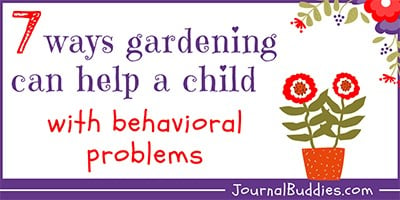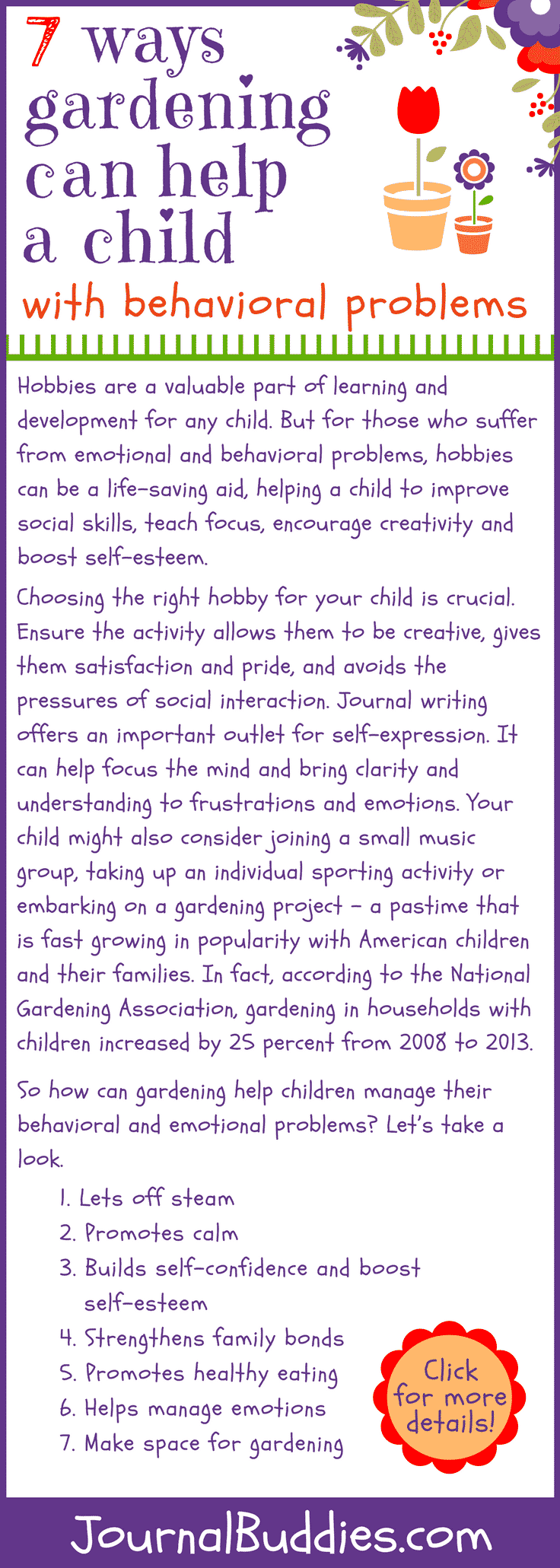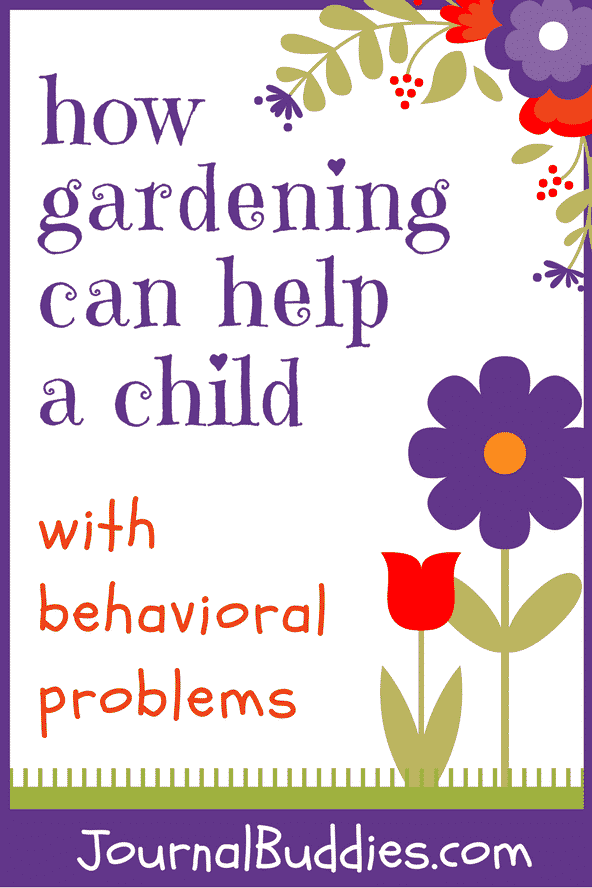Harvesting Happiness: How Gardening Can Help a Child with Behavioral Problems

Hobbies are a valuable part of learning and development for any child. But for those who suffer from emotional and behavioral problems, hobbies can be a life-saving aid; helping a child to improve social skills, teach focus, encourage creativity and boost self-esteem.
Choosing the right hobby for your child is crucial. Ensure the activity allows them to be creative, gives them satisfaction and pride, and avoids the pressures of social interaction. Journal writing offers an important outlet for self-expression. It can help focus the mind and bring clarity and understanding to frustrations and emotions. Your child might also consider joining a small music group, taking up an individual sporting activity or embarking on a gardening project – a pastime that is fast growing in popularity with American children and their families. In fact, according to the National Gardening Association, gardening in households with children increased by 25 percent from 2008 to 2013.
So how can gardening help children manage their behavioral and emotional problems? Let’s take a look.
Let off steam
By being outdoors and actively involved in the physical tasks of gardening, such as digging and harvesting, kids can release their built up energy and help rebalance hormones which can reduce disruptive behavior and encourage better concentration.
Promotes calm
We all know that nature can aid relaxation and reduce stress. These benefits are particularly valuable for those with ADHD which affects 5% of children in the United States. A recent survey of parents of children with ADHD revealed that outdoor activities help reduce a child’s symptoms. In fact ‘nature therapy’ is a widely recognized form of treatment for this disorder.
Builds self-confidence and boosts self-esteem
A gardening project involving on-going care of plants demands ownership and responsibility. For a child that has difficulty paying attention and focusing on tasks, this can be an enormous challenge but, when conquered, it will boost morale. It’s a good idea to start with plants that require low maintenance. For example, yucca plant care is straight-forward, bringing the rewards of attractive plants with relatively little attention from the gardener. Yucca plants can withstand lack of regular watering and can be looked after both indoors and out in the yard.

Strengthens family bonds
Gardening is a hobby that the whole family can enjoy together, sharing the many tasks of digging, hoeing, watering, feeding and so on. This can be especially rewarding when bonding is difficult due to challenging behavior.
Promotes healthy eating
Research has shown that children who grow their own fruit and vegetables are more likely to eat healthy food. Gardening is a great way to clear the sugar and additives out of children’s diets, often thought to be associated with hyperactivity, and introduce new healthy home-grown options. Try fast-growing salad leaves, pea plants that creep up trellis, and pumpkins that you can watch expand.
Helps manage emotions
Children exposed to gardening may be inspired to create a nature journal. This offers an opportunity for them to reflect on their thoughts and experiences. This can be of particular benefit to children who sometimes feel impulsive and out of control. Take a look at these nature writing prompts for inspiration.
Make space for gardening
Making space for gardening is easy, especially if you have a back yard. But if you don’t, why not make use of your local community garden or introduce a container garden on your doorstep. Whatever you do, ensure gardening is an activity that the whole family enjoys – so that you and your plants can all flourish together.
Related Links & Resources
Until next time!
If you enjoyed this How Gardening Can Help a Child article,
please share them on Facebook, Twitter, and/or Pinterest.
I appreciate it!
Sincerely,
Jill
journalbuddies.com
creator and curator





